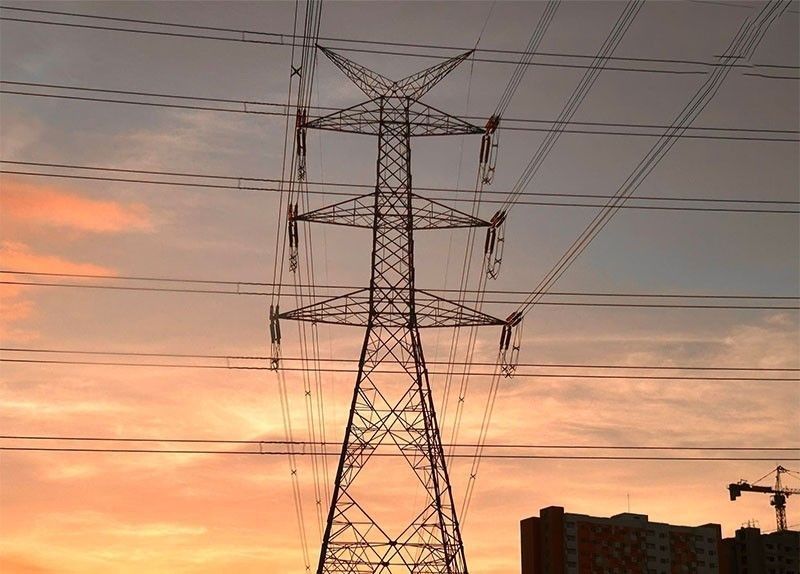Poor energy regulation


Our energy sector seems to be in rather bad shape these days due to poor regulation by both the DOE and ERC. All the yellow and red alerts even on weekend evenings are indicators of poor planning and a poor regulatory system.
It is pathetic how DOE revels in the success of Meralco’s Interruptible Load Program (ILP) designed to make big consumers operate their generator sets and collectively reduce what they draw from the grid when there is limited supply.
The ILP is a band-aid response that highlights inadequacy of energy planning. Indeed, we have yellow alerts close to midnight because there is no more ILP when the big consumers like malls have closed for the day but the supply deficiency remains.
And the Visayas have more problems because the islands seem to need power sources within each island. The submarine interconnections have not always been helpful, sometimes because of an excess of VRE clogging the grid. Case in point: Negros to Panay.
It all starts with EPIRA that puts the provision of power supply in the hands of the private sector. That means the role of government is essentially planning to assure supply and regulation to protect the consumers.
That also means the government must make sure the business of providing electricity to the public remains profitable. Otherwise, private investors will shy away from making the big bets on power plants. Investors want adequate regulatory assurance of fairness in earning just returns in a timely manner. Without private investors, who will build those power plants?
There is a lot of frustration from the red tape in getting government clearances to build power plants and also red tape in the approval of power supply contracts even if these have already undergone competitive bidding under the Competitive Selection Process or CSP. Delay means time loss and that means opportunity costs that make power projects more expensive and unattractive.
There also seems to be an absence of common sense in the regulation of the power sector. Recall the problem when San Miguel Power asked for a revision of their approved PSA to allow them to claim a rate increase of 29 centavos per kwh over a six-month period to help recover an abrupt 400 percent increase in the price of imported coal and natural gas following the outbreak of the war in Ukraine.
ERC refused to allow San Miguel to amend its PSA, insisting a contract is a contract. But that contract also has a provision covering unforeseen events and surely the Ukraine war was such.
ERC rejected San Miguel’s claim based on a change in circumstances. That forced San Miguel to cancel the contract altogether which the contract also allows. The case went to the Court of Appeals and eventually to the Supreme Court and both high courts sustained the position of San Miguel.
In the meantime, Meralco was forced to buy from the WESM and from other suppliers. That brought the blended rate increase to 84 centavos per kwh, way higher than the 29 centavos San Miguel was asking for. If I remember right, the San Miguel rate was in the neighborhood of P4/kwh. WESM was charging as high as P11/kwh which ERC had to approve or their original bad judgment would end up in brownouts.
ERC threw common sense to the wind. On the legal point ERC raised, neither the Supreme Court nor the Appeals Court agreed with ERC. Simply put, ERC failed to protect the consumers because we ended up paying more.
The backlog in ERC approvals of PSAs, on the other hand, is a kind of regulatory uncertainty discouraging investors.
As for the DOE, they do not seem to have an energy program to show there is adequate planning to assure us the right infrastructure is there when we need them. DOE is obligated to have a plan that assures energy resource adequacy.
First of all, an energy plan must support the economy as it grows. How much power will we need? What generation mix are we looking at? Where will these plants be located? What transmission facilities are needed to serve these generation plants?
And since DOE keeps saying we have aging coal fired power plants, do we have a retirement plan for these plants to include replacements for their baseload function? When will these plants be finally switched off? Will we just wait for these plants to die? Or, would we retrofit these plants for better efficiency and cleaner outcomes even if still fueled by coal?
The DOE should stop talking about modular nuclear plants. It is not going to happen any time soon and it is just a distraction. Indeed, if they have been keeping up with their readings of industry news, they would have come upon an article last week that talks about a reality check for small modular reactors.
“While such reactors were once thought to be a solution to the complexity, security risks, and costs of large-scale reactors, the report asks if continuing to pursue these smaller nuclear power plants is a worthwhile endeavor in terms of meeting the demand for more and more energy around the globe. The answer to this question is pretty much found in the report’s title: Small Modular Reactors: Still Too Expensive, Too Slow and Too Risky.”
Besides, we do not have an appropriate regulatory body for anything nuclear. It takes years to develop a competent one, based on our experience when we prepared for the Bataan nuclear plant some decades ago.
Expensive and unreliable power is the biggest deterrent for foreign investors. BBM’s foreign trips are useless unless we fix our energy situation. The current energy secretary is competent. But he does seem overwhelmed because the sector had not received the proper attention. That neglect is now coming home to roost.
Boo Chanco’s email address is [email protected]. Follow him on X @boochanco.
- Latest
- Trending


























